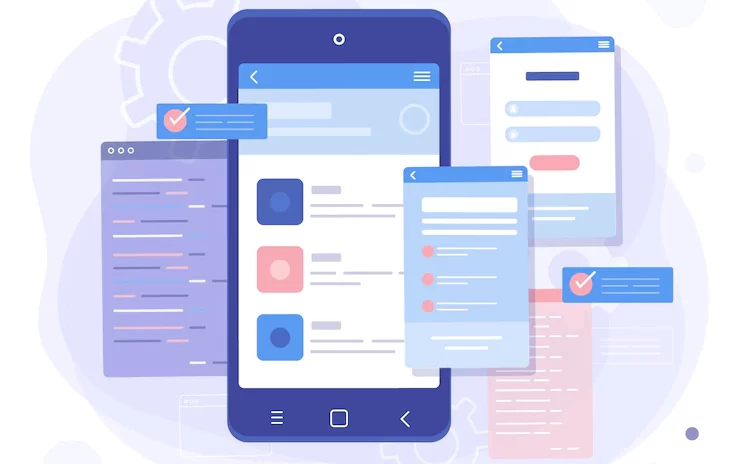The Latest Innovations in Mobile App Development
Mobile app development has changed quite a bit over the years. The technology and tools available to developers have evolved, allowing us to create more intuitive and easier-to-use apps than ever before. Let’s take a look at some of the mobile innovations that drive the market forward.
Latest Innovations in Mobile App Development
Augmented Reality (AR)
Augmented reality is a digital experience that blends the natural world and computer-generated imagery to provide a composite view. The latest developments in the market of mobile devices contribute to more accessible and broader use of augmented reality on smartphones. For example, Apple’s LiDAR scanner allows AR experiences to be prepared so quickly that they call the technology ‘instant AR’.
Already, many companies are using AR on their apps as part of their marketing campaigns or as an experience for users who want to learn more about their product or service by looking at it from different angles. For example, AR use cases may include shopping malls where shoppers can see virtual displays of clothes before buying them online or museums where visitors can look through collections without physically being there. The number of such examples is growing and becoming more diverse, keeping augmented reality at the top of mobile trends.
Beacon Technology
Beacons are small wireless devices that use Bluetooth Low Energy technology to transmit proximity-based signals to other devices nearby. The most common use is to send location-based data, such as ads and notifications, to users’ smartphones. For example, users in a store can receive beacon-based notifications with coupons and special offers related to their proximity to certain products.
Implementing beacon technology in a mobile application helps increase user engagement and boost sales. In addition to marketing, bicones can be used for indoor navigation, item tracking, mobile ticketing, customer behavior analytics, and more.
Mobile Payments
Mobile payments are the future of e-commerce. Their convenience, security, and ease of use make them ideal solutions for businesses today. Paying with your mobile phone will allow customers to skip the checkout line, saving precious time.
The introduction of mobile payments occurs through the development of mobile payment apps or the integration of payment gateways into existing solutions. The latest innovations from market leaders only serve to move this trend forward. For example, Apple added Tap to Pay in its iOS 16, allowing payment apps to accept payments from contactless credit or debit cards directly. This allowed small businesses to accept electronic payments without having to install a terminal.
Artificial Intelligence (AI)
AI is a broad term that encompasses areas like machine learning, deep learning, natural language processing, and computer vision. It has recently become popular with mobile app development due to its ability to provide quick results when analyzing data from a large amount of text or images. AI has been widely used to enhance user experience by improving user interaction with the application or device. For example, voice commands can be issued using voice assistant functions, such as Google Assistant for Android or Siri for Apple OS devices. Content-rich apps benefit from intelligent search and thoughtful recommendations. With the help of innovative search, the system tries to guess what the user is looking for as they type and provides information without waiting for the user to finish entering the entire query. Intelligent recommendations increase user engagement and loyalty by offering them additional content based on their interests.
Also, AI strengthens well-known features of mobile applications such as image recognition, facial recognition, etc.
Internet of Things (IoT)
The Internet of Things is a network of interrelated physical objects that can communicate, including machines, cars, home appliances, and other things. They are embedded with electronics, software, sensors, actuators, and connectivity to enable them to connect and transfer data. Third-party applications or even automated processes within your organization can then use this information.
IoT is one of the key mobile app innovations, especially in the smart home industry. The technology helps create a network of devices and manage them remotely. In addition, smartphones have the potential to independently apply their computing capabilities for specific purposes, such as finding a lost Bluetooth device, rather than simply receiving information from an established network.
Final Thoughts
There’s no doubt that the world of mobile app development is changing. With new developments in AR, AI, and IoT, developers have more options regarding application development. The industry’s future looks bright, and we’re excited to be a part of it. The demand for mobile apps is increasing exponentially, and this trend will continue to grow over the next few years. That’s why keeping up with the latest mobile app development trends is essential to staying ahead of competitors.

















